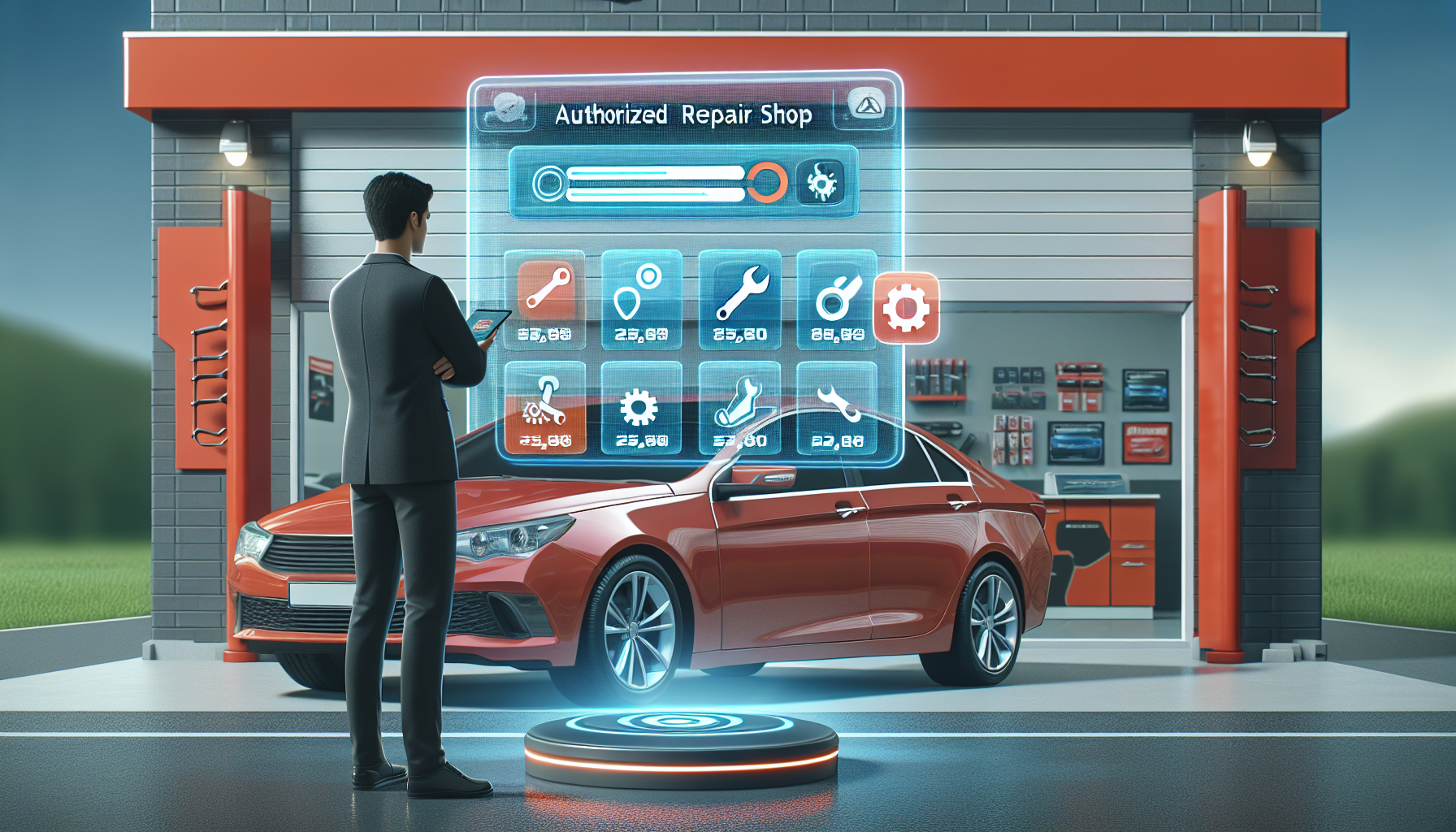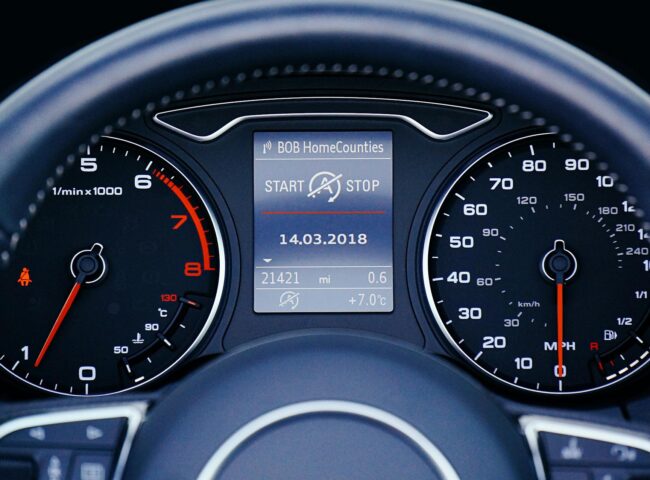Is an auto warranty a smart financial move? Securing an auto warranty can guard against expensive repair costs and boost your car’s resale value—a reassuring thought for any car owner. In this article, we unpack the tangible benefits of purchasing an auto warranty, such as cost savings, enhanced flexibility, and those unexpected extras that could make all the difference. Keep reading to discover how an auto warranty may just be the safeguard your wallet and peace of mind need.
Key Takeaways
- Auto warranties, including factory, extended, and vehicle service contracts, provide varying levels of coverage for new and used cars, offering protection against costly repairs and wear-and-tear.
- Extended warranties and vehicle service contracts offer financial benefits by minimizing out-of-pocket expenses for major repairs, thus providing considerable cost savings and peace of mind for car owners.
- Auto warranties can contribute to enhanced vehicle resale value through transferable coverage and required maintenance, while also offering convenience through customizable plans and a choice of repair providers.
Understanding Auto Warranties: Types and Coverage

For many car owners, understanding the different types of auto warranties can be challenging. From factory warranties to extended car warranties and vehicle service contracts, each offers a different level of coverage for your vehicle. The factory warranty often referred to as the manufacturer’s warranty, is standard with all new cars and covers parts affected by wear-and-tear or manufacturing errors.
Conversely, extended warranties offer continued coverage after the expiration of the manufacturer’s warranty, thus maintaining the protection of your car. In contrast, vehicle service contracts provide either an alternative or supplementary coverage to factory warranties, enabling the customization of your vehicle protection plan to fit your unique needs.
Factory Warranty
For new car owners, a factory warranty serves as a safety net. It typically includes bumper-to-bumper coverage, covering most parts of the vehicle, and powertrain coverage, which ensures the engine, transmission, and other powertrain components. Some manufacturers even provide additional benefits, varying from maintenance services to corrosion and emissions coverage.
This warranty generally lasts between 3 to 4 years or 36,000 miles for bumper-to-bumper coverage, and up to 60 months or 60,000 miles for powertrain coverage.
Extended Warranty
An extended warranty, otherwise referred to as an aftermarket warranty, becomes effective after the termination of the original factory warranty. This type of warranty offers coverage for significant and costly vehicle components such as the engine and transmission, making it particularly beneficial for used cars with no manufacturer’s warranty. To ensure cost-effectiveness, it’s advisable to purchase an extended warranty while the car is still under the original factory warranty.
The cost of an extended car warranty is influenced by various factors including:
- The level of coverage
- Provider’s reputation
- Make and model of the vehicle
- Age
- Mileage
- The company’s price transparency
Vehicle Service Contracts
For car owners seeking additional or alternative coverage to factory warranties, vehicle service contracts serve as a compelling option. These contracts allow for customization, typically covering only mechanical breakdowns rather than issues caused by normal wear and tear. This flexibility extends to the choice of repair providers, with third-party vehicle service contracts often allowing repairs to be done by any certified mechanic, which is a significant advantage over manufacturer-specific warranties.
Financial Savings and Protection

Financial protection ranks as one of the main advantages of auto warranties. Extended warranties can mitigate financial risk by covering major repairs, which can be particularly costly for luxury vehicles. With an extended warranty, car owners are responsible only for the deductible, after which the warranty provider covers the remaining costs for covered issues.
This considerably reduces direct expenses, offering peace of mind and safeguarding against unexpected financial strains.
Cost Savings on Repairs
The cost of car repairs can quickly add up, especially for major vehicle repairs like air conditioning compressor replacement or fuel pump replacement. An extended warranty can help manage these expenses by covering parts and labor for repairs. By doing so, it encourages car owners to address car issues promptly, thereby avoiding further damage and costlier repairs down the line.
It’s worth mentioning that extended warranties do not cover all car issues, hence, understanding their exclusions is vital for accurate cost evaluation.
Minimizing Out-of-Pocket Expenses
Besides the cost savings on repairs, extended warranties also help minimize out-of-pocket expenses. For covered repairs and part replacements, car owners only need to cover the deductible, and the warranty provider covers the remaining costs. By adhering to prescribed maintenance schedules and keeping detailed receipts as required by extended warranties, car owners can avoid unexpected costs and warranty voidance.
The deductible can be charged per individual repair or per warranty service visit, depending on the terms of the warranty, which can further reduce out-of-pocket expenses, especially when multiple shop visits are required for a single issue.
Enhanced Convenience and Flexibility

Auto warranties not only provide financial protection but also contribute to improved convenience and flexibility. Here are some benefits of extended car warranties:
- They provide the flexibility to take cars to any authorized repair shop, in contrast to manufacturer warranties which typically restrict service to specific dealerships.
- Third-party warranty providers offer car owners the ability to customize their coverage options and shop around for the most suitable and affordable coverage.
- Depending on the warranty, deductibles can be charged per individual repair or per warranty service visit, providing car owners with options that best suit their needs.
Choosing an Authorized Repair Shop
Extended warranties afford flexibility in selecting a repair shop, which is one of their convenient aspects. With nationwide coverage, car owners can choose any authorized repair shop for covered repairs, even while traveling. This is what extended car warranties cover, making it a valuable investment for many.
Much like extended warranties, vehicle service contracts also provide repair provider flexibility, with options ranging from authorized service centers to dealer-specific repairs under a vehicle service contract.
Customizable Coverage Options
The ability to customize coverage options is another advantage of auto warranties and vehicle service contracts. These coverages can range from powertrain warranties to comprehensive bumper-to-bumper plans, allowing customers to choose coverage for specific vehicle systems or components.
By allowing for customization, extended warranty providers help car owners find competitively priced extended vehicle protection plans that fit both vehicle requirements and personal budgets.
Additional Benefits and Perks

Auto warranties commonly include extra benefits and perks, beyond the main coverage. These include roadside assistance, rental car reimbursement, and trip interruption coverage. These add-ons not only add value to the warranty but also offer additional peace of mind and convenience for car owners.
Roadside Assistance
Roadside assistance is a common benefit included in many auto warranties. This service provides help in situations like mechanical breakdowns, lockouts, or flat tires, typically available at any time. Some roadside assistance services even extend to include extras like rides home from the mechanic, fuel delivery, locksmith services, and minor roadside repairs.
Choosing roadside assistance from car warranty companies, especially third-party providers, can occasionally prove more economical than the premium vehicle protection plans offered by automobile manufacturers, including their car insurance options.
Rental Car Reimbursement
Rental car reimbursement is another valuable perk included in many extended warranties. This coverage takes care of the costs of renting a replacement vehicle while your car is under repair. Most warranty providers, including manufacturers and third-party companies, offer this benefit, which is generally activated while the vehicle is in the repair shop for covered repairs.
Trip Interruption Benefits
Trip interruption coverage is an additional benefit that can prove to be a lifesaver during long trips. If a vehicle breakdown requires an overnight repair, this coverage may cover hotel and food costs. Often, trip interruption coverage accompanies rental car reimbursement in auto protection plans, providing additional support such as lodging costs in the event of a vehicle breakdown away from home.
Boosting Resale Value

An auto warranty not only provides coverage for potential repairs but also contributes to enhancing your vehicle’s resale value. A well-maintained car naturally retains a higher value, and having an extended auto warranty supports vehicle maintenance by covering repairs and ensuring regular servicing.
Moreover, transferable extended warranties can increase a vehicle’s resale value, making the car more appealing to potential buyers by offering them additional peace of mind, and raising the question: are extended car warranties worth it?
Maintaining Vehicle Condition
Keeping your vehicle in good condition is vital for preserving its value, and an extended warranty can assist in this regard. Warranties typically require the owner to follow the manufacturer’s routine maintenance schedule to keep the coverage in effect. Adherence to this schedule ensures essential routine services such as:
- oil changes
- filter replacements
- tire rotations
- various system checks
are carried out, contributing to the vehicle’s ongoing good condition.
Moreover, keeping detailed records of all services provides tangible evidence of the car’s well-maintained status to prospective buyers.
Transferable Coverage
Transferable warranties add another layer of value to your car when it comes time to sell. Most extended warranties are transferable, making them an attractive selling point for prospective buyers. Furthermore, having a transferable warranty suggests that the vehicle is a low-risk financial investment to potential buyers, which can lead to a higher resale value.
While transferring an extended warranty to a new owner may require a small fee, it is usually a minor cost compared to the overall added resale value provided by the warranty.
Evaluating Your Needs: When to Consider an Auto Warranty
The decision to invest in an auto warranty necessitates a careful analysis of several factors. These include the car’s reliability, potential repair costs, and one’s personal risk tolerance. It’s important to remember that each car and driver is unique, and what works for one person might not work for another.
Hence, you should take into account your vehicle’s reliability and your financial ability to manage potential repair expenses. If you tend to safeguard against potential high repair costs, an extended warranty might suit you well.
Vehicle Reliability
The reliability of a vehicle plays a crucial role in determining the necessity of an extended warranty. If you’re purchasing a new or used car, make sure to check its reliability ratings. Cars with lower reliability ratings may benefit more from extended warranties as they provide financial relief from potential repairs.
If you’re considering an extended warranty for a used vehicle, factors such as projected ownership duration, annual mileage, and financial capability for repairs must be evaluated.
Repair Costs vs. Warranty Cost
Another factor to consider is the cost of potential repairs compared to the cost of the warranty. Extended warranty costs typically range from $1,000 to $3,000, and these costs can be financed through an auto loan, potentially leading to additional interest and fees. If you’re considering the purchase of an extended warranty, assess if the cost of potential repairs could exceed the price of the warranty itself, bearing in mind the reliability of the vehicle.
Personal Risk Tolerance
Finally, your personal risk tolerance and comfort with possible repair expenses can significantly impact your decision to invest in an auto warranty. Some consumers consistently opt for extended warranties across various products as a strategy to mitigate financial risk.
Ultimately, the choice to purchase an extended warranty reflects an individual’s level of comfort with the possibility of future repair expenses.
Summary
In conclusion, investing in an auto warranty offers numerous benefits, from financial savings and protection to enhanced convenience and flexibility. In addition to covering major repairs and minimizing out-of-pocket expenses, warranties provide additional benefits like roadside assistance, rental car reimbursement, and trip interruption coverage. Furthermore, they can boost a vehicle’s resale value by maintaining its condition and offering transferable coverage to new owners. However, it’s crucial to weigh all factors, including the vehicle’s reliability, potential repair costs, and your personal risk tolerance, before deciding to purchase an auto warranty. After all, peace of mind in car ownership is invaluable.
Frequently Asked Questions
What does a factory warranty typically cover?
A factory warranty typically covers bumper-to-bumper and powertrain components of the vehicle, and may include additional benefits like maintenance services and corrosion/emissions coverage.
How can an extended warranty save me money?
An extended warranty can save you money by covering unexpected major vehicle system repairs, encouraging prompt issue resolution and preventing further damage and costly repairs.
What additional benefits do auto warranties offer?
Auto warranties offer additional benefits such as roadside assistance, rental car reimbursement, and trip interruption coverage, providing added value and peace of mind for car owners.
How can an auto warranty boost my vehicle’s resale value?
Having an auto warranty can boost your vehicle’s resale value by maintaining its condition, covering repairs, and offering additional peace of mind to potential buyers. This makes the car more appealing and desirable.
What factors should I consider before purchasing an auto warranty?
Consider factors such as vehicle reliability, potential repair costs, and personal risk tolerance before purchasing an auto warranty. Every car and driver is unique, so what works for one person might not work for another.





